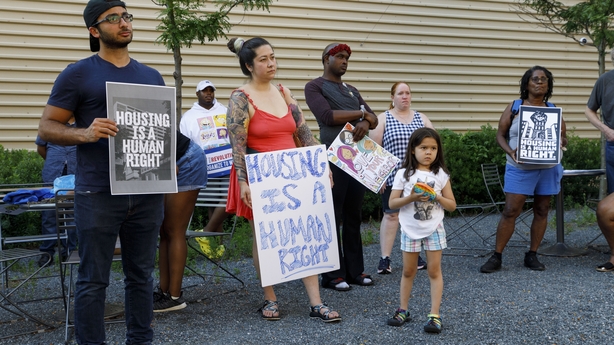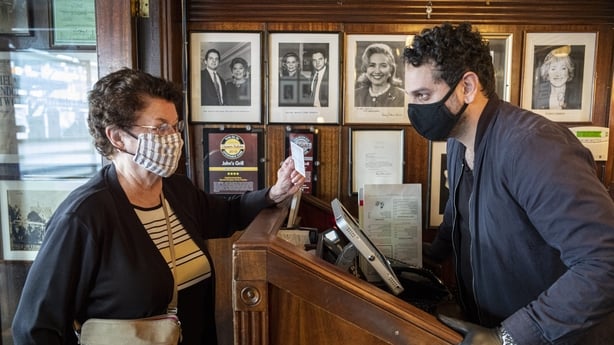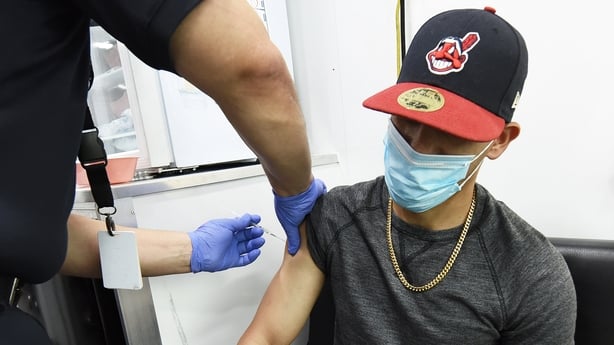The US Supreme Court has blocked the extension of a federal moratorium on evictions, ending protections given to millions who have struggled to pay rent during the Covid-19 pandemic.
In a 6-3 ruling, the court sided with homeowners who claimed they were victims of unjustified actions, and argued that any renewal of the moratorium should be decided by Congress, not health officials.
The court’s unsigned majority opinion said the Centers for Disease Control and Prevention (CDC) had overstepped its authority with its recent order to temporarily halt evictions in areas with increasing cases of coronavirus.
«It is up to Congress, not the CDC, to decide whether the public interest merits further action here,» said the eight-page majority opinion.
The court’s three liberal justices objected, citing concerns that the eviction could exacerbate the spread of the delta variable.
The case was prompted by the CDC last, for two months, brought up on August 3.
It expired earlier, in September 2020, issued by the CDC after a June Supreme Court ruling that said it could not continue beyond July 31 without congressional authorization.
President Joe Biden’s administration urged Congress to approve the extension, but politicians failed to do so before the summer recess.
Under pressure from Democrats, the CDC ordered a new moratorium, citing the public health risks posed by the pandemic.
The Supreme Court has now ended this moratorium.
White House press secretary Jen Psaki said the administration was «disappointed» that the court had blocked an eviction moratorium «while confirmed Delta cases are significant across the country.»
In a statement, Ms. Psaki said the endowment «saved lives by preventing the spread of Covid-19 throughout the pandemic».
The White House expected the stay to be challenged in court, but hoped the extra time would allow emergency rental assistance funds approved by Congress to reach those in need.

But much of that money is still stuck in red tape, even as about 3.5 million people in the US told the Census Bureau they would face eviction in the next two months.
Ms. Psaki said that in light of the ruling «and the continuing risk of transmission of the Covid-19 virus, President Biden once again calls on all entities that can prevent evictions… to act urgently to prevent evictions.»
Oregon reintroduces mask mandate
Meanwhile, masks must be worn outside in Oregon starting today, making the northwest state the first in the country to reimpose the mandate.
«The delta variant is spreading rapidly and widely, throwing our state at a level of crisis not yet seen in a pandemic,» said Governor Kate Brown.
«Cases and hospitalizations are at a record level,» she said. A 2019 study found that Oregon has among the lowest number of hospital beds per capita in the country
«Masks have been shown to be effective in bringing down the issue countdown and are a necessary measure right now, even in some outdoor settings, to help fight Covid and protect each other,» Brown added.
The rules mean that everyone – vaccinated and otherwise – should wear a mask in any public place where people from different families mix.
Oregon, along with other states, requires masks to be worn indoors, but is the first to routinely require them outside.
Los Angeles County in California announced earlier this month that masks must be worn at large outdoor events, such as sports fixtures and concerts.
Covid cases rise
The United States is experiencing a spike in Covid-19 infections, driven by a highly contagious delta type.
Scientists say the fight against the disease is faltering due to poor intake of vaccines, which are free and readily available.
About half of all Americans are fully vaccinated, although uptake of the vaccine varies greatly from region to region.

Despite their proven effectiveness, masks – and vaccines – are highly controversial in the United States, with opposition driven by politics, distrust of government, and hatred toward science.
Health professionals hope the full regulatory approval given to Pfizer jab on Monday will help overcome unfounded suspicions that the vaccine is unsafe.
An increasing number of public and private bodies are calling for employee vaccinations, but skepticism remains strong.
A senior Los Angeles firefighter is being investigated on Tuesday after he posted a lengthy video in which he described the fire department’s demand for a vaccine for employees as «tyranny.»

«Lector profesional. Jugador galardonado. Aficionado a los zombis. Adicto a las redes sociales. Experto en tocino. Erudito en Internet»
